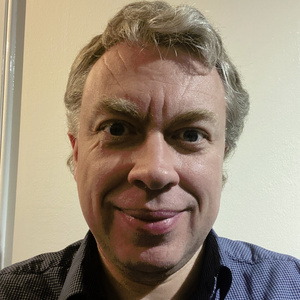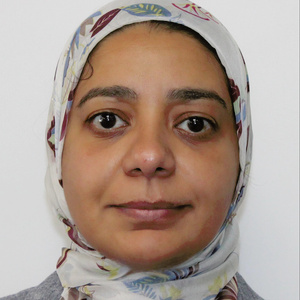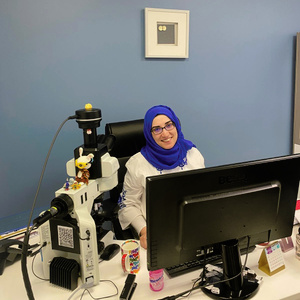Part 1 and Part 2 are available to read on our blog pages. We want to extend another huge thank you to all those who have contributed to this blog series, as well as everyone who volunteers with the College in some way. Your time, expertise and dedication are vital to the delivery of our key professional services. Without you, the College simply could not function.
The College is always in need of volunteers to support our work in examinations and assessment. Whatever your specialty or skillset, we’d love to have you on board. Please head to our volunteer pages to find out more information on the roles and how to apply.

Dr Kevin Deans, Consultant Chemical Pathologist
“I came originally from South-West Scotland (though people often say that they wouldn't be able to tell from my accent!). I was based in Glasgow for my undergraduate training (medical degree and BSc (Hons) in Medical Biochemistry), during which my interest in clinical biochemistry was ignited.
After qualifying as a doctor, I gained some general medical experience and passed MRCP, before embarking on specialty training in chemical pathology with metabolic medicine in the West of Scotland. After gaining FRCPath, completing my training and obtaining a PhD in vascular biochemistry, I moved to Aberdeen in 2010 to take up a post as consultant chemical pathologist.
I've always been enthusiastic about training, and examinations are an integral part of that. While exams are seldom a pleasant experience, I want to do what I can to make exams as fair and transparent an experience as possible for candidates. That involves continuously reviewing exam material and developing new questions to ensure that the exam material reflects the curriculum and assesses fitness for the ‘day job’ of today as clinical and scientific practice continues to evolve.
I'm also keen to make sure that the exams contain no surprises for candidates: we're working hard to make general information available to candidates to let them know what the exams involve, and what they should expect. My role involves everything from planning the material for the next exam sitting, to being present to help coordinate and organise things on exam days, to organising and participating in marking days afterwards, and reviewing marks before results are published. It's also important for me to keep an eye on the wider picture of ensuring that the exams remain appropriate in relation to today's world and are in line with regulatory guidance and requirements.
Of course, all of this work is very much a team effort. The College has an excellent (and very busy) Exams team, and I work closely with them, as well as with my fellow examiners – many of whom coordinate parts of the exam, write questions, examine or mark. I appreciate the work of every one of them.
I know this might seem hard to believe, but as an examiner it's very satisfying to see candidates doing well and passing. The exams are demanding, and the required standards are high, but we want to see people passing and it's rewarding when that's the outcome.
The other thing that I find particularly helpful is to read the responses in the candidate survey that's sent out after each exam sitting. We do pay close attention to what candidates say; we make changes where that's what's needed, and it's rewarding when feedback suggests that candidates have felt that their experience was fair and that they were treated with respect.
I also enjoy hearing and taking on board comments from trainee representatives on the various committees that I attend, and when we can work together to improve the candidate experience, that's a win for everyone.”

Dr Nesreen Magdy, Consultant Histopathologist
“I am a UK-based consultant histopathologist with a specialist interest in uropathology, breast and gynaecological pathology. I trained in Egypt and sat the FRCPath examination in 2015, when no overseas centres were available.
I chose to volunteer with the College as an examiner to support the smooth running of the exams and to contribute to maintaining the high standards expected in our profession. I also wanted to gain deeper insight into the examination process, which in turn helps me guide trainees more effectively – particularly overseas candidates who may find the system unfamiliar and need extra support. I still remember how overwhelming the process felt when I sat the exam, and I hope to ease that stress for others.
As an educational supervisor, I find participating in the exams extremely valuable. It enhances my ability to support trainees and allows me to stay closely involved in their journey. I’ve taken part in vivas for frozen sections, macroscopic pathology and the OSPE, as well as central marking. I also really enjoy meeting examiners from other hospitals and different backgrounds – it’s a great way to expand my professional network and share perspectives.
Most of all, I find it rewarding to be part of this important moment in a trainee’s career, and I try to approach the role with kindness and encouragement to help reduce their anxiety. It’s a privilege to contribute in this way.”
Dr Marium Khan, Consultant Histopathologist
“I have been a histopathology examiner since 2011. Over the years, I have regularly contributed to both Part 1 and Part 2 histopathology examinations. For the Part 2 examination, I have been involved in paper setting, hosting an exam as site lead and central marking of scripts. Now I am lead examiner for FRCPath Part 1 in histopathology.
My passion for training and assessment has been the driving force behind my engagement and participation in the development of exam materials and the examination process has given me valuable insights into the evolving training needs of our specialty. Balancing these responsibilities with a full-time role can be a challenge; however, the professional fulfilment and satisfaction derived from this work far outweighs the demands.
I strongly encourage fellow pathologists to engage in this valuable experience, as it not only supports the advancement of our profession but also offers personal and professional growth.”

Dr Fatima Al-Hashimi, Consultant Histopathologist
“I am a consultant histopathologist at King Hamad University Hospital, part of the Royal Medical Services in Bahrain. In addition, I serve as a senior clinical lecturer at RCSI Medical University of Bahrain. My postgraduate training in histopathology was completed in NHS hospitals across London, followed by 2 subspecialty fellowships in uropathology and renal pathology in the USA. With over 16 years of clinical practice, I have remained actively involved in medical education and training throughout my career.
I am Bahrain’s regional advisor for the Royal College of Pathologists, and I have been an examiner with the College since 2022. I chose to volunteer as an examiner because I am deeply passionate about pathology education, upholding academic standards and supporting the development of the next generation of pathologists. Serving as an examiner allows me to contribute to the meticulous assessment of candidates’ clinical knowledge and judgment through structured examinations. It’s also a great learning experience for me, especially in understanding and applying effective assessment tools in postgraduate medical education.
What I find most rewarding about this role is the opportunity to collaborate with like-minded and experienced professionals who are equally committed to the profession. It is also a privilege to witness firsthand the dedication, talent and enthusiasm of future specialists. This role gives me the chance to give back to the institution that played a formative role in shaping the pathologist I am today.”
Thank you
Thank you again to everyone who contributed to this blog series for Volunteers' Week 2025.
As we mentioned at the beginning of the series, the College could not function without the dedication of hundreds of members who take up volunteer roles. All these members are actively contributing to our mission to advance the science and practice of pathology, and to deliver the best patient care possible.
As well as helping to shape the future of pathology, undertaking College activities will also support you in your continuing professional development. Please do consider volunteering - we'd love for you to get involved in our work.
If you have any questions or comments about this blog series, or if you have any suggestions for future blogs, please contact the Member Engagement and Support team.

